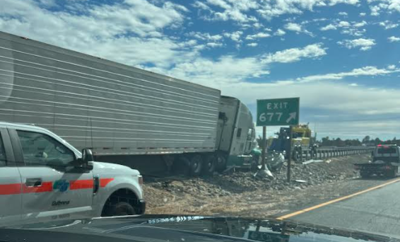Introduction
Truck accidents can have devastating consequences, often resulting in significant property damage, serious injuries, and even fatalities. Understanding the human factor in these accidents, particularly driver negligence, can make a considerable difference in how cases are evaluated and litigated. This article explores the intricacies of driver negligence in big rig accident cases, the key roles played by truck accident attorneys, and legal strategies employed to hold negligent drivers accountable.
Defining Driver Negligence
Driver negligence occurs when a driver fails to exercise a reasonable standard of care, leading to an accident that could have been prevented. In the context of big rig accidents, the stakes are high, as big rigs are substantially larger and heavier than typical passenger vehicles. This increased mass can result in catastrophic damage during a collision, making it essential to identify when driver negligence has occurred.
Types of Driver Negligence
Understanding the different types of driver negligence that can lead to big rig accidents is crucial for evaluating responsibility in such cases. Here are some common forms:
- Distracted Driving: This includes any activity that diverts attention from driving, such as texting, eating, or adjusting the radio. For truck drivers, even a momentary distraction can lead to severe accidents. Fatigue: Long hours on the road can lead to driver fatigue, adversely affecting concentration, reaction times, and decision-making. The Federal Motor Carrier Safety Administration (FMCSA) enforces regulations regarding hours of service to combat this issue. Speeding: Many truck drivers may feel pressured to meet tight deadlines, resulting in speeding or aggressive driving. This behavior can significantly increase the risk of accidents. Substance Abuse: The use of drugs or alcohol before or during the operation of a big rig is a severe form of negligence. Strict regulations exist to prevent substance abuse, but violations do occur. Inadequate Vehicle Maintenance: Negligence also extends to ensuring the truck is in optimal working condition. Failing to conduct regular inspections and maintenance can lead to equipment failures that cause accidents.
Legal Framework Surrounding Truck Accident Cases
Truck accident cases are governed by a blend of state and federal laws, which complicates the legal landscape. Understanding these laws is critical for both victims and attorneys as they navigate the complexities of a case.
Federal Regulations
The FMCSA outlines specific regulations that govern interstate trucking operations. These rules cover various aspects, including:
- Driver Qualifications: Truck drivers must meet specific requirements and obtain appropriate licenses to operate commercial vehicles. Hours of Service: Regulations stipulate how many hours a driver can operate a truck and require mandatory rest breaks to combat fatigue. Vehicle Condition: Trucks must meet safety standards, including functional brakes, tires, and lights, to ensure roadworthiness.
State Laws
Each state has its own laws regulating motor vehicle operations, and this includes rules on negligence and liability. For instance, some states follow comparative negligence laws, which allow the court to assign a percentage of fault to each party involved in an accident.
The Role of Truck Accident Attorneys
In the aftermath of a truck accident, victims often face overwhelming challenges that can make it difficult to pursue a claim. Engaging a knowledgeable truck accident attorney is essential for several reasons:
Investigative Expertise
Truck accident attorneys possess the skills and resources necessary to conduct thorough investigations. This often includes:
- Collecting and analyzing evidence, such as accident reports, witness statements, and truck maintenance records.Consulting with accident reconstruction experts to understand what led to the incident.Identifying potential sources of liability beyond the driver, such as trucking companies or vehicle manufacturers.
Negotiation Skills
Negotiating with insurance companies can be challenging, especially legal advice from a truck accident law firm for victims unfamiliar with the process. Truck accident attorneys negotiate on behalf of their clients to maximize compensation. Some aspects they consider include:
- Medical expenses, including future care costs.Lost wages for time away from work.Pain and suffering damages for emotional distress.
Litigation Experience
If negotiations fail, truck accident attorneys are prepared to take the case to court. They draw upon their experience to present a compelling argument in front of a judge or jury. This involves:
- Developing a clear narrative of the accident using evidence and testimonies.Establishing negligence on the part of the driver or other parties.Countering defenses raised by the opposing side, such as claims of shared responsibility.
Establishing Fault in Big Rig Accident Cases
Determining fault in big rig accident cases can often be complex due to various contributing factors. Here are key elements that are typically considered:
Evidence Gathering
A thorough investigation is critical in establishing fault. Valuable evidence includes:
- Dashcam footage from the truck or nearby vehicles.Data from the truck's Event Data Recorder (EDR) which can provide insights into speed, braking, and other actions leading up to the collision.Witness statements that corroborate the events surrounding the accident.
Expert Testimony
Hiring experts can lend credibility to a case. For instance, accident reconstruction specialists can recreate the moments leading to the accident, demonstrating how negligence played a role.
Comparative Negligence
In jurisdictions using comparative negligence, if the injured party is found to bear some responsibility for the accident, it may reduce their compensation. Claims of rider negligence need careful evaluation, ensuring that victims receive a fair settlement.
Conclusion
Driver negligence is a significant factor in big rig accident cases, and understanding its implications is crucial for holding responsible parties accountable. Engaging the services of experienced truck accident attorneys can be invaluable in navigating the Best truck accident lawyer near me legal complexities that arise in these situations. By understanding traffic legislation, gathering compelling evidence, and demonstrating negligence, victims can pursue the compensation they deserve.

As awareness around the importance of driver accountability grows, it’s essential for truck drivers and the companies that operate them to prioritize safety and make informed choices. The consequences of neglecting these responsibilities can be life-altering not only for victims but also for the drivers involved.